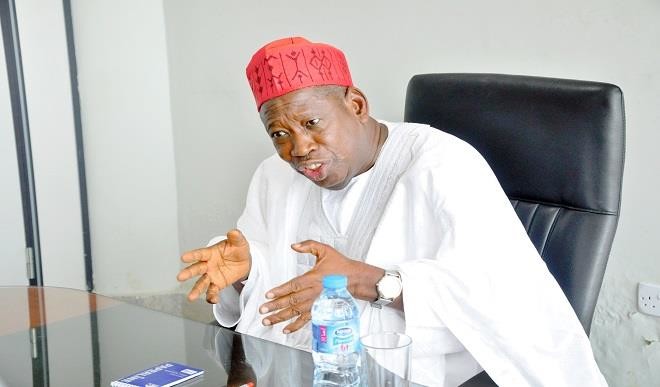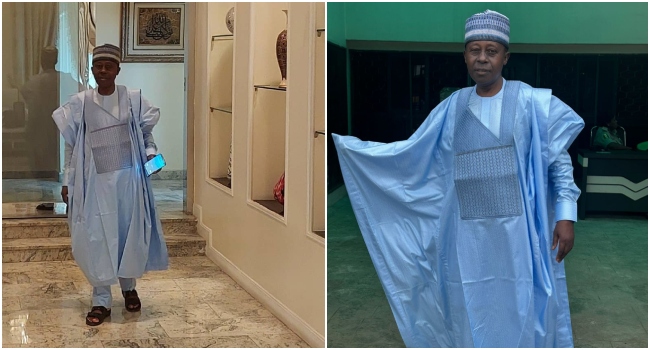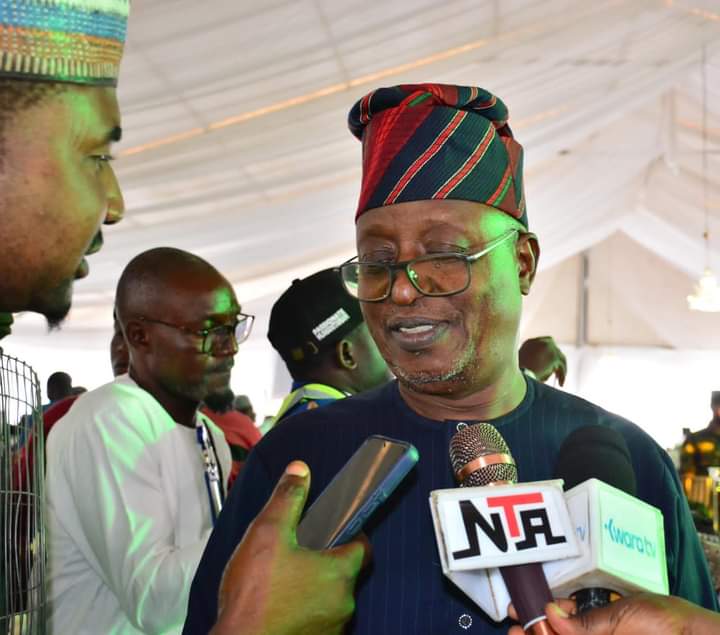- Fed Govt slams France, UK roles in IPOB crisis
The Federal Government spoke yesterday of an international dimension to the Indigenous People of Biafra (IPOB) crisis.
It accused the United Kingdom of doing very little about its complaint that Biafra Radio was broadcasting from its terrirory.
Besides, said the government, the bulk of IPOB’s funding from its diaspora supporters is sent through France.
Information Minister Lai Mohammed, who stated this yesterday after the Federal Executive Council (FEC) meeting, added that IPOB leader Nnamdi Kanu’s belligerent attitude and the violence the group employed could not be overlooked by any government.
The minister said: “Let me tell you, the financial headquarters is in France, we know, but you see, can you as a government stop sending money to your parents? You have to block the sources of finance that is what I said recently.
“It is incontrovertible that some people in the diaspora contribute money to IPOB. We know this as a fact. Again, there are a few knotty diplomatic issues which you need to skip. For instance, who does not know that the IPOB internal radio is located in London? We know the diplomatic moves we have been taking and approaching the UK, all the damage it has done; but they don’t see it that way. For them, it is about freedom of expression.
“If we have a person in Nigeria openly soliciting arms to come and fight the UK, what would you think of it. Would you consider that freedom of expression? And this is a country that also has had a history; what did the Irish Repubublican Army (IRA) do to be labelled a terrorist organisation? They were planting bombs, they were fighting the British army.
“I don’t want any diplomatic row. We know for a fact where the funding is coming from and we are going to stop them but it is difficult to stop them and we have been working on it and we will not stop.”
On those financing IPOB, the minister said: “We have the records; we know IPOB collects money from many people from the diaspora, they collect money from many people in Nigeria. They collect money from some foreign countries; this is clear.
”I think this is not rocket science. Any treasury looter would do everything possible to distract the government. If by any act, God forbid it, Nigeria is today engulfed in war, and Nigeria is now involved in trying to quell unrest, will the courts be spared? What would be the first priority of government? It will be to quell that riot, so it is a way of distraction to ensure that government is not focused.
Mohammed added: “Let me state clearly that it is within the rights of individuals or groups to seek self-determination. But this pursuit has to be non-violent. Where any group crosses the line by engaging in violence, it risks being cut to size and that’s exactly what has happened to IPOB. I am not interested in the semantics or legality of troops deployment or the proscription of IPOB. All I know is that IPOB has engaged in terrorist activities, viz: Setting up parallel military and paramilitary organisations, clashing with the national army and attempting to seize rifles from soldiers, using weapons, such as machetes, molotov cocktails and sticks and mounting roadblocks to extort money from people, among others.
“To those who have engaged in semantics or legality, I ask: which country in the world will tolerate those activities I have listed above? Which national army will look the other way when it is being attacked by a band of thugs?
“For those who are fixated with legality, I have good news for them: President Muhammadu Buhari has approved the process of proscribing IPOB, and the procedure is on as I speak. But I ask, if the President had been overly concerned with legality, where would Nigeria have been today? If attacks in the South-east had attracted reprisals elsewhere in the country, what would have happened?
“But for the quick action of governors in the South-east and the North, there would have been a conflagration of immense proportions.”
Mohammed praised the South-east governors for making it clear to IPOB that it has no support for its violent campaign.
“By their action, the governors have cut off the oxygen that IPOB needs to survive. If the elected governors of all the states in the South-east have banned the activities of IPOB, who then is the organisation fighting for?
“I did state, during my earlier interactions, that IPOB is a contraption against the Buhari Administration, and that it is being sponsored by those I call the Coalition of the Politically-Disgruntled and the Treasury Looters. I stand by that statement despite the noise emanating from the usual suspects. To quote the title of a James Hadley Chase novel, The Guilty Are Afraid, I will add: The guilty are always overly agitated. Good for them.”
The minister went on: “I think anybody who has watched Nnamdi Kanu’s videos anywhere he goes to, he openly solicits for arms and for funds. I have a lot of quotations from him as to the violence intention of IPOB; in one of his videos, he said if he is arrested, his boys should burn down the country, the same Kanu went on television a few days ago saying he was sleeping at about 4:30pm in his house in Umuahia and then some solders were making noise they were disturbing his sleep and his boys stopped them.
“I ask him which country in the world would tolerate this. Unfortunately, Nigerians, we have short memories, at times, or we intend to be very mischievous because this thing is being turned into the North is persecuting the Southeast or Muslims persecuting Christians. We have forgotten that in 1983 there was a group called Maitasine in Kano, they were crushed by the Shagari government, they were Muslims and northerners.
“When they relocated to Burukutu they were again crushed by Shagari. When Buhari became Head of State, the same Maitasine raised their heads, he chased them far into the Chad Republic as then Head of State, I remember that time he was accused by America of trying to expand Ghadafi’s agenda.
“Abacha in his own time dealt also with Maitasine and he was a Muslim. President Umaru Yar Adua in 2010 was on his way to the airport when he got a report about Boko Haram; he sent the army to go and destroy them; these were Muslims from the North dealing with essentially Islamic Muslim insurgencies.
“Anything about insurgence or terrorists act you don’t think about religion, you don’t think about ethnicity, you think about the unity of the country.
“But for me, do you want the President to wait for this to be put into law before you take action and stop looting or killing. Where will Nigeria be today if there is conflagration in Lagos or Kano? Like the Governor of Abia said yesterday, there are about 11million Igbo living outside the Southeast; that is not a small number; it’s not a joke,” he said.
In the minister’s view “Nigeria has been very lucky,as there would have been massive bloodshed if reprisals had taken place outside the Southeast and it didn’t take place because our traditional rulers, our governors and other leaders went out to pacify people and the kind of stories that has been trending on the social media has not helped things.” “As a matter of fact, there was one stating that a major general had been killed, not knowing that it was a retired major that was killed in Benue state over land matters; that would have set the entire country ablaze.”
He spoke of how the Federal Capital Territory (FCT) minister mobilised all the 17 graded traditional chiefs and emirs in Abuja to meet with all the stakeholders to prevent reprisal attacks.
“And they think it’s a joke; you can imagine what would have happened if the people of Kano or Kaduna had started retaliation. So, we are in a very dangerous situation and actually we are sitting on a keg of gunpowder. The peace that you are seeing is deceptive. We must continue to work on it and we must continue to counter this very untrue narrative.
“Is there anybody here who can tell me which part of Nigeria genocide is taking place it is not true but of course we are in the era of fake news and artificial intelligence where you can make a video of what is happening in Iraq super impose pictures in Nigeria and voices and send it. People are gullible, including some foreign countries.”
According to him, the Buhari administration will never stifle anybody’s freedom of expression.
Mohammed said: “On the basis of that, we have heard some funny bones saying that Nigeria should be expelled from the United Nations because they are perpetuating genocide. This government will not stifle anybody’s freedom of expression, but when you cross the line for the sake of national unity we won’t allow you.”
On Buhari’s approval of the IPOB proscription, Mohammed said: “There is a procedure for proscription. The President must sign the proclamation after which the Attorney General will follow the procedure which he is doing.”


 Naira4 weeks ago
Naira4 weeks ago
 News3 weeks ago
News3 weeks ago
 Education4 weeks ago
Education4 weeks ago
 Social Media4 weeks ago
Social Media4 weeks ago
 Economy4 weeks ago
Economy4 weeks ago
 Investment4 weeks ago
Investment4 weeks ago
 Dividends4 weeks ago
Dividends4 weeks ago
 Business3 weeks ago
Business3 weeks ago




























